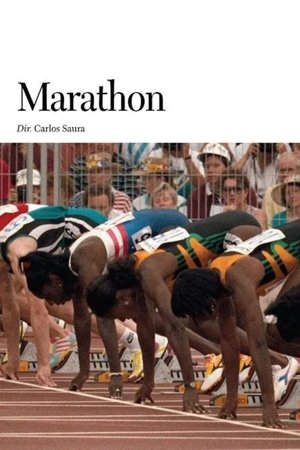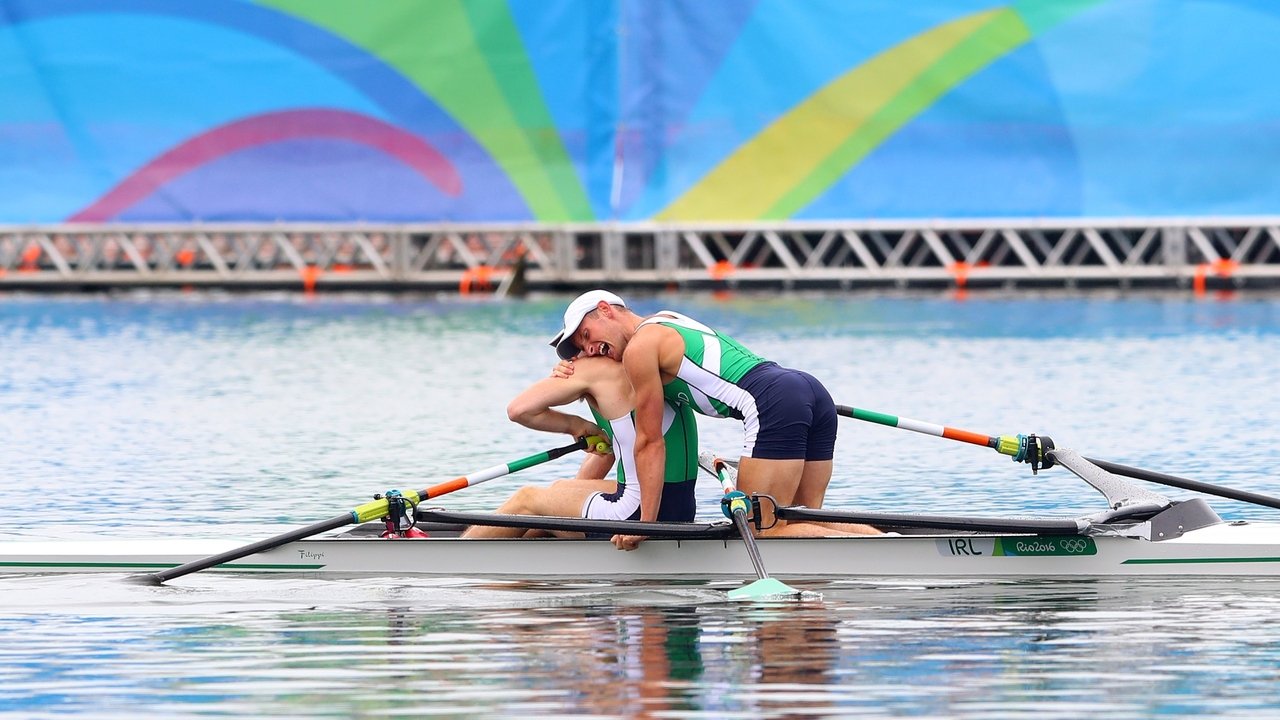
Pull Like A Dog(2016)
Irish rowing brothers Gary and Paul O'Donovan
A documentary film looking back at the 2016 Olympics in Rio de Janeiro, including rowing brothers Gary and Paul O'Donovan, who won silver medals at the games. In August 2016 Gary and Paul O’Donovan, two young rowers from West Cork in Ireland, came from nowhere to become household names after bolting their way to silver medal success at the Rio Olympics. Not only did they become the first ever Irish rowers to bring home Olympic medals but within a week Paul also went on to become the fastest singles lightweight rower on the planet by winning gold at the World Championships. With catch phrases like ‘Pull Like A Dog’ and ‘Stheak and Spuds’ these two young men have succeeded in warming the hearts of a nation.

Movie: Pull Like A Dog
Top 2 Billed Cast
Gary O'Donovan
Paul O'Donovan
Video Trailer Pull Like A Dog
Similar Movies
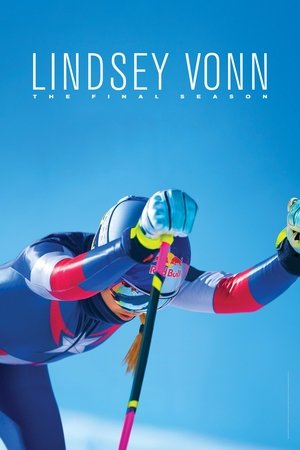 6.6
6.6Lindsey Vonn: The Final Season(en)
Universally recognized as the greatest female skier ever, Lindsey Vonn went on a remarkable journey that was defined by unexpected twists and turns and dramatic peaks and valleys in its final chapter. LINDSEY VONN: THE FINAL SEASON intimately recounts the iconic skier’s last competitive campaign while looking back on her transcendent career, from child prodigy to decorated Olympian to global superstar.
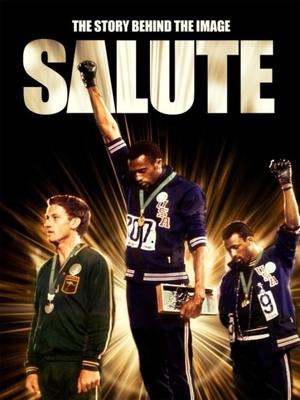 6.6
6.6Salute(en)
The black power salute by Tommie Smith and John Carlos at the 1968 Mexico Olympics was an iconic moment in the US civil rights struggle. Far less known is the part in that episode in history played by Peter Norman, the white Australian on the podium who had run second — and the price paid afterward by all three athletes.
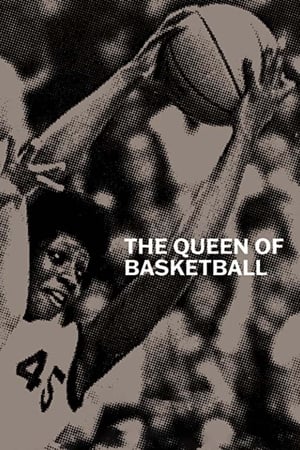 7.1
7.1The Queen of Basketball(en)
She was arguably the greatest women's basketball player. She won three national trophies; she played in the ’76 Olympics; she was drafted to the NBA. But have you ever heard of Lucy Harris?
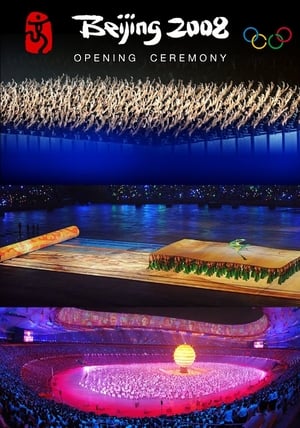 7.9
7.9Beijing 2008 Olympic Opening Ceremony(zh)
The 2008 Summer Olympics opening ceremony was held at the Beijing National Stadium, also known as the Bird's Nest. It began at 8:00 p.m. China Standard Time (UTC+8) on August 8, 2008, as 8 is considered to be a lucky number in Chinese culture. Featuring more than 15,000 performers, the ceremony lasted over four hours and cost over $100 million USD to produce.
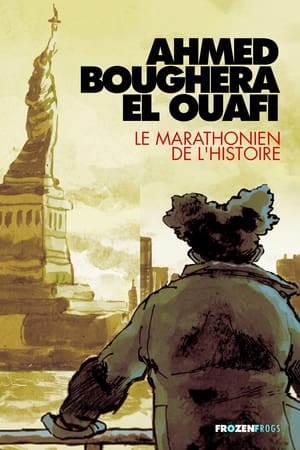 10.0
10.0El Ouafi Boughera, The marathon runner of history(cn)
On August 5, 1928, after 2 hours and 32 minutes of racing, the 71st rooster wearing the bib entered the Olympic stadium in Amsterdam. Ahmed El Ouafi Bouguéra wins the gold medal and becomes the first Olympic champion from the African continent. He achieved his feat under the tricolor flag. The start of his real marathon is underway. The history of sport extends to the history of Algeria and France. This documentary retraces the different stages of the life of this great champion, not only the history of sport but also the great story. Archival photographs and interviews mingle with the painted paintings. The series thus once again gives voice to this forgotten hero, one of the great heroes of immigration who defended France for more than a century.
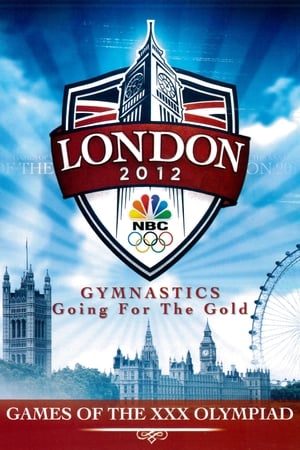 10.0
10.0London 2012: Gymnastics - Going for the Gold(en)
At the 1996 Atlanta Games, the Magnificent Seven became the first American women to ever win gymnastics team gold. Sixteen years later, in London, the Fierce Five joined them in the history books. Relive all the excitement as Gabby Douglas, Aly Raisman, Jordyn Wieber, McKayla Maroney and Kyla Ross take the lead from the first rotation and never look back on their way to gold. Follow Gabby Douglas on her way to the podium to make it three straight American gold medals in the individual all-around competition. Every individual event final is featured on this DVD, including Aly Raisman's historic gold-medal performance in the floor exercise, her bronze on the balance beam, as well as McKayla Maroney's silver medal in the vault.
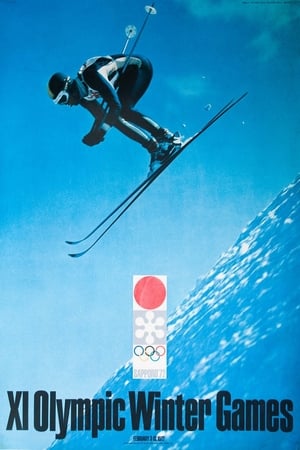 6.7
6.7Sapporo Winter Olympics(ja)
A documentary about the 1972 Winter Olympic Games in Sapporo, Japan.
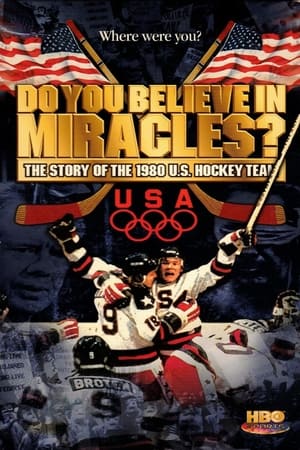 8.8
8.8Do You Believe in Miracles? The Story of the 1980 U.S. Hockey Team(en)
At the Winter Olympics of 1980, after two tense weeks amidst growing Cold War fears, the U.S. Olympic hockey team found themselves playing improbably against the legendary unbeatable Soviet Army hockey team for Olympic Gold. From the live footage taken at Lake Placid, NY, and through interviews beginning with the team's assembly through the experience of winning the gold medal.
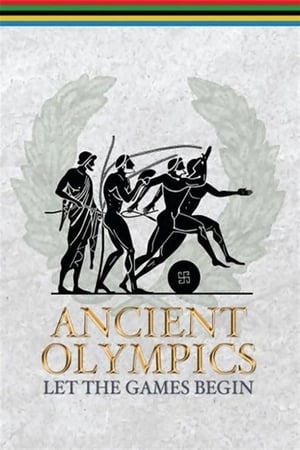 0.0
0.0Ancient Olympics: Let the Games Begin(en)
Come back with us to Ancient Greece, 2,500 Years ago to the original Olympic Games. The ancient Games, like our modern Olympics, included champions and cheaters, glory and scandals, bitter rivalries and contests of strength, speed and savage combat. Set in 448 BC when the pounding of horse's hooves and the brutal hand-to-hand combat could be heard and seen by the crowds that filled the Olympic stadium. This one-hour special event follows the glory and corruption of the arc of a single, five-day Olympiad. The competitions include chariot racing, running, jumping, discus, javelin and two man-to-man combat finals-boxing and pankration, a form of extreme fighting in which death was not uncommon. With the help of sports historians and great athletes such as George Chuvalo and Olympic medallists Donovan Bailey and Angela Schneider, viewers travel back to a very different life-in a very different world.
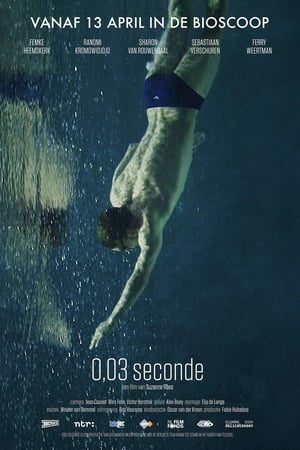 5.0
5.00,03 seconds(nl)
A poignant insight into the world of sport, where talent, passion and endurance mean everything, but give no guarantee of success.
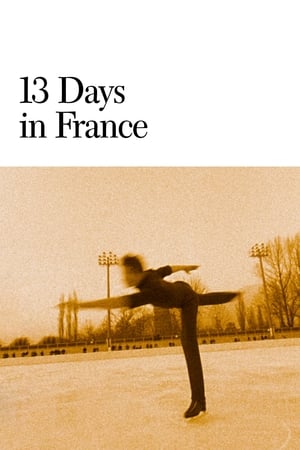 6.0
6.013 Days in France(fr)
This colorful documentary chronicles the events of the 1968 Winter Olympics in France. The events made international celebrities of skater Peggy Fleming and skier Jean-Claude Killy for their gold-medal performances. The camera accurately catches the speed of bobsleds and downhill racers and ski jumpers as they race for the gold. President Charles DeGaulle is shown observing the action over 13 days, which saw France earn the best performance to date in the winter games.
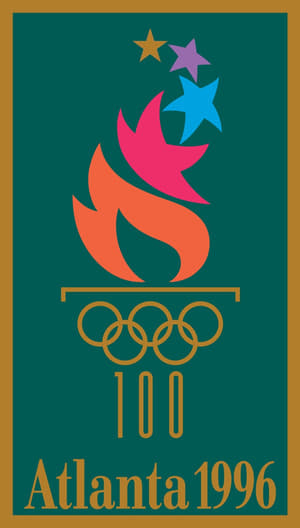 5.0
5.0Spirit of the Games(en)
Documentary examines the history and evolution of the Olympic Games, taking a close look at the Olympic charter, oath and ideals. Also featured are rare home movies and interviews with Olympic athletes and the oldest known color footage of the Olympic Games from Berlin in 1936.
 6.7
6.7Olympia: Part Two – Festival of Beauty(de)
Commissioned to make a propaganda film about the 1936 Olympic Games in Germany, director Leni Riefenstahl created a celebration of the human form. Where the two-part epic's first half, Festival of the Nations, focused on the international aspects of the 1936 Olympic Games held in Berlin, part two, The Festival of Beauty, concentrates on individual athletes such as equestrians, gymnasts, and swimmers, climaxing with American Glenn Morris' performance in the decathalon and the games' majestic closing ceremonies.
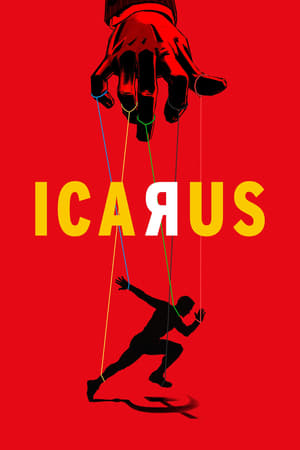 7.6
7.6Icarus(en)
While investigating the furtive world of illegal doping in sports, director Bryan Fogel connects with renegade Russian scientist Dr. Grigory Rodchenkov—a pillar of his country’s “anti-doping” program. Over dozens of Skype calls, urine samples, and badly administered hormone injections, Fogel and Rodchenkov grow closer despite shocking allegations that place Rodchenkov at the center of Russia’s state-sponsored Olympic doping program.
 6.9
6.9Olympia: Part One – Festival of the Nations(de)
Commissioned to make a propaganda film about the 1936 Olympic Games in Germany, director Leni Riefenstahl created a celebration of the human form. This first half of her two-part film opens with a renowned introduction that compares modern Olympians to classical Greek heroes, then goes on to provide thrilling in-the-moment coverage of some of the games' most celebrated moments, including African-American athlete Jesse Owens winning a then-unprecedented four gold medals.
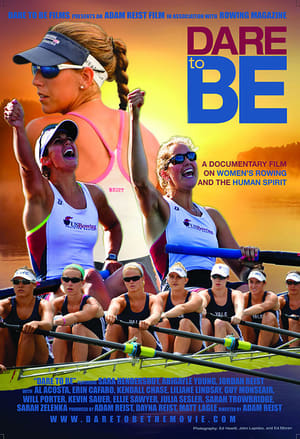 0.0
0.0Dare to Be(en)
Dare to Be is a documentary film not only on the sport of rowing, but also the human spirit. It follows a series of rowers ranging from novice girls to women training for the Olympics, as they overcome obstacles and seek greatness. We learn along their journey that greatness can come in many forms and should not always be measured by traditional concepts of success, but rather by individual triumphs. It essentially suggests that athletes can define what success looks like to them – not coming in last place, beating a rival, medaling for the first time, qualifying for nationals, or winning an Olympic gold medal.
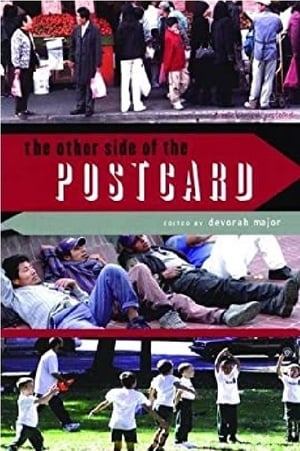 7.5
7.5The Other Side of the Postcard(pt)
The Favela Pacification Program was launched in 2008 to reduce crime and drug trafficking in Rio de Janeiro, Brazil. In April 2015 however, police shot and killed 10-year old Eduardo in Complexo do Alemão, causing uproar in that community. Alemão and other pacified communities began to realise that the program had become the very thing it was designed to destroy. Taking place in the build to the 2016 Olympic Games, this is the side of Rio that you have never seen before.
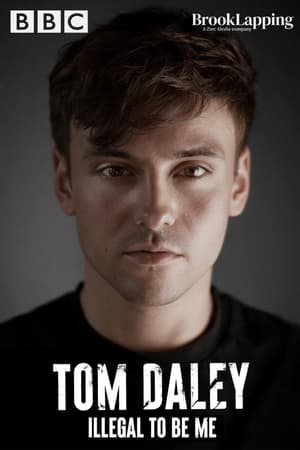 5.5
5.5Tom Daley: Illegal to Be Me(en)
Tom Daley visits the most homophobic countries in the Commonwealth to explore how gay athletes are facing extreme persecution. What can the Commonwealth Games do to help?
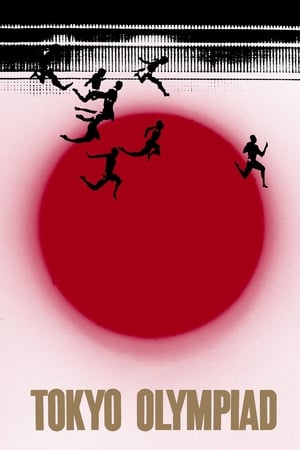 7.8
7.8Tokyo Olympiad(ja)
This impressionistic portrait of the 1964 Tokyo Summer Olympics pays as much attention to the crowds and workers as it does to the actual competitive events. Highlights include an epic pole-vaulting match between West Germany and America, and the final marathon race through Tokyo's streets. Two athletes are highlighted: Ethiopian marathon runner Abebe Bikila, who receives his second gold medal, and runner Ahamed Isa from Chad, representing a country younger than he is.

